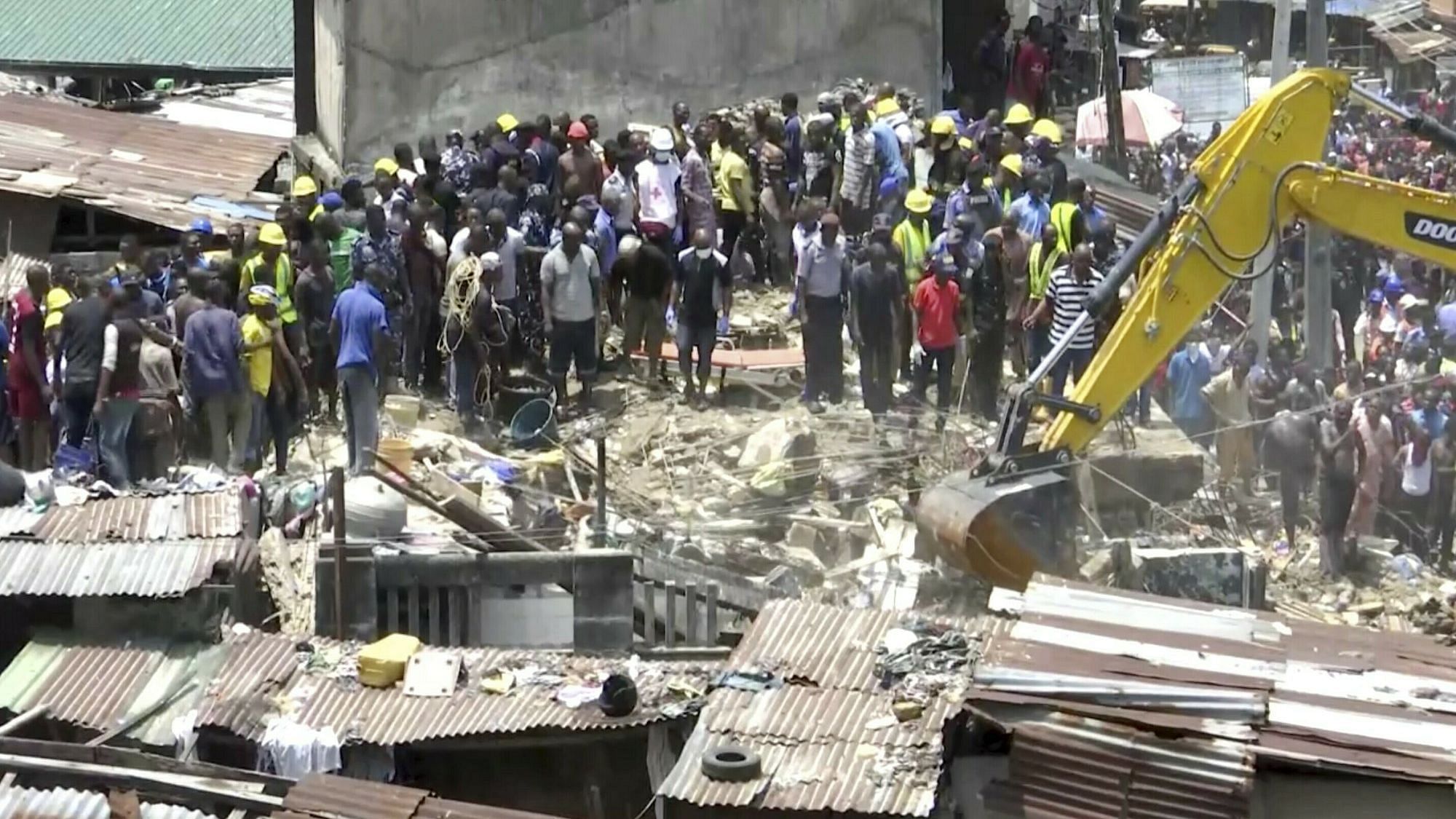Nigeria School Building Collapse: 8 Dead, Rescue Work Underway
Scores of children are thought to be inside the collapsed building.

Search and rescue work continued in Nigeria on Thursday, 14 March, after a building containing a school collapsed with scores of children said to be inside.
Eight people were dead and 37 were rescued, a National Emergency Management Agency spokesman said late Wednesday.
Frantic rescue efforts were underway in Nigeria on Wednesday, 13 March, after a three-storey school building collapsed while classes were in session, with many children thought to be inside.
An Associated Press video from the scene showed a dust-covered child being carried out of the rubble and another child being pulled out and slung over a rescuer's shoulder.
Hundreds of people stood in narrow streets and on rooftops of rusted, corrugated metal. A single yellow excavator scooped at the ruins, a nest of rebar and dust.
Emotional, a number of shirtless men jumped in to offer assistance, hacksaws and mallets in hand. Some were barefoot. One held a water bottle between his teeth.
Sani Datti, a spokesman with Nigeria's National Emergency Management Agency, told the Associated Press that officials from the agency and other emergency services were at the site.
"For now, we don't have any word on casualties as we are still busy with rescue work," he said.
The collapse comes as President Muhammadu Buhari, newly elected to a second term, tries to improve groaning, inefficient infrastructure in Africa's most populous nation.
"Nigeria's infrastructure is generally less than half the size than in the average sub-Saharan Africa country and only a fraction of that in emerging market economies," the International Monetary Fund has noted.
"The perceived quality of the infrastructure is low."
(Published in an arrangement with AP)
(At The Quint, we are answerable only to our audience. Play an active role in shaping our journalism by becoming a member. Because the truth is worth it.)